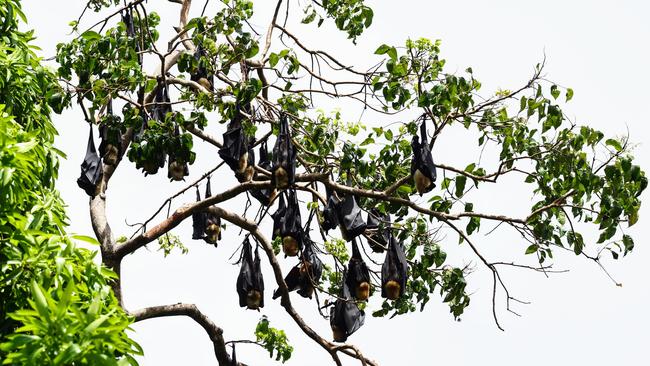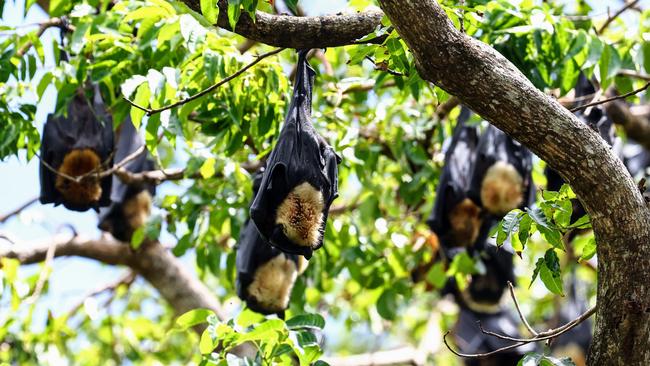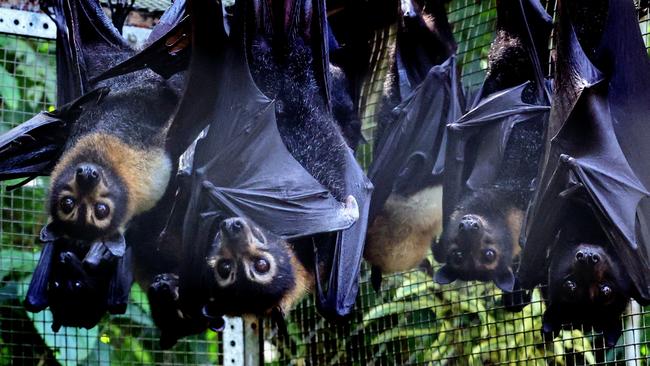Cairns health officials warn locals against interacting with bats during breeding season
Health officials are warning locals against interacting with bats as the potentially disease-carrying mammals commence breeding season - making them highly dangerous, while they appear frail.

Cairns
Don't miss out on the headlines from Cairns. Followed categories will be added to My News.
Far North public health officials are warning locals against interacting with bats as the potentially disease-carrying mammals commence breeding season - making them particularly dangerous while they appear frail.
Tropical Public Health Services director Dr Jacqui Murdoch said flying foxes and other bats were important native animals and helped with pollination and controlling insect pests, but also carried the threat of dangerous diseases such as Australian bat lyssavirus.
She said ABLV was an infection like rabies, which could be transmitted through a bat bite or scratch, or possibly through exposure of the eyes, nose, or mouth to bat saliva.

“So far this year, there have been 13 people either bitten or scratched by bats, who have required medical treatment,” Dr Murdoch said.
“Is it essential that people do not touch bats.
“Similar to being bitten by a rabid dog or monkey in Asia, anyone bitten or even scratched by a bat needs a series of injections to prevent a potentially fatal illness.”
Dr Murdoch said any species of bat may be carrying ABLV and the bat may look normal.
“Bats are very cute up close, so people want to rescue them,’’ she said.
“During breeding season, you are more likely to find fallen pups or sick or injured bats, often stuck on a wire fence.
“They will bite straight through gloves or a towel, so don’t risk it.”

Dr Murdoch said people trying to help should call a trained and vaccinated wildlife carer.
“Our message is simple: Don’t touch a bat,” she said.
“Any type of bat, adult, or pup, sick or well, dead, or alive.
“Keep children away too. It’s just like snakes: protected native animals, but you wouldn’t pick them up.”
Anyone bitten or scratched by a bat should immediately wash the wound, apply antiseptic and seek urgent medical care.
For more information on ABLV, visit the Queensland Health’s viral infections site at www.qld.gov.au/health/condition/infections-and-parasites/viral-infections/australian-bat-lyssavirus
More Coverage
Originally published as Cairns health officials warn locals against interacting with bats during breeding season




